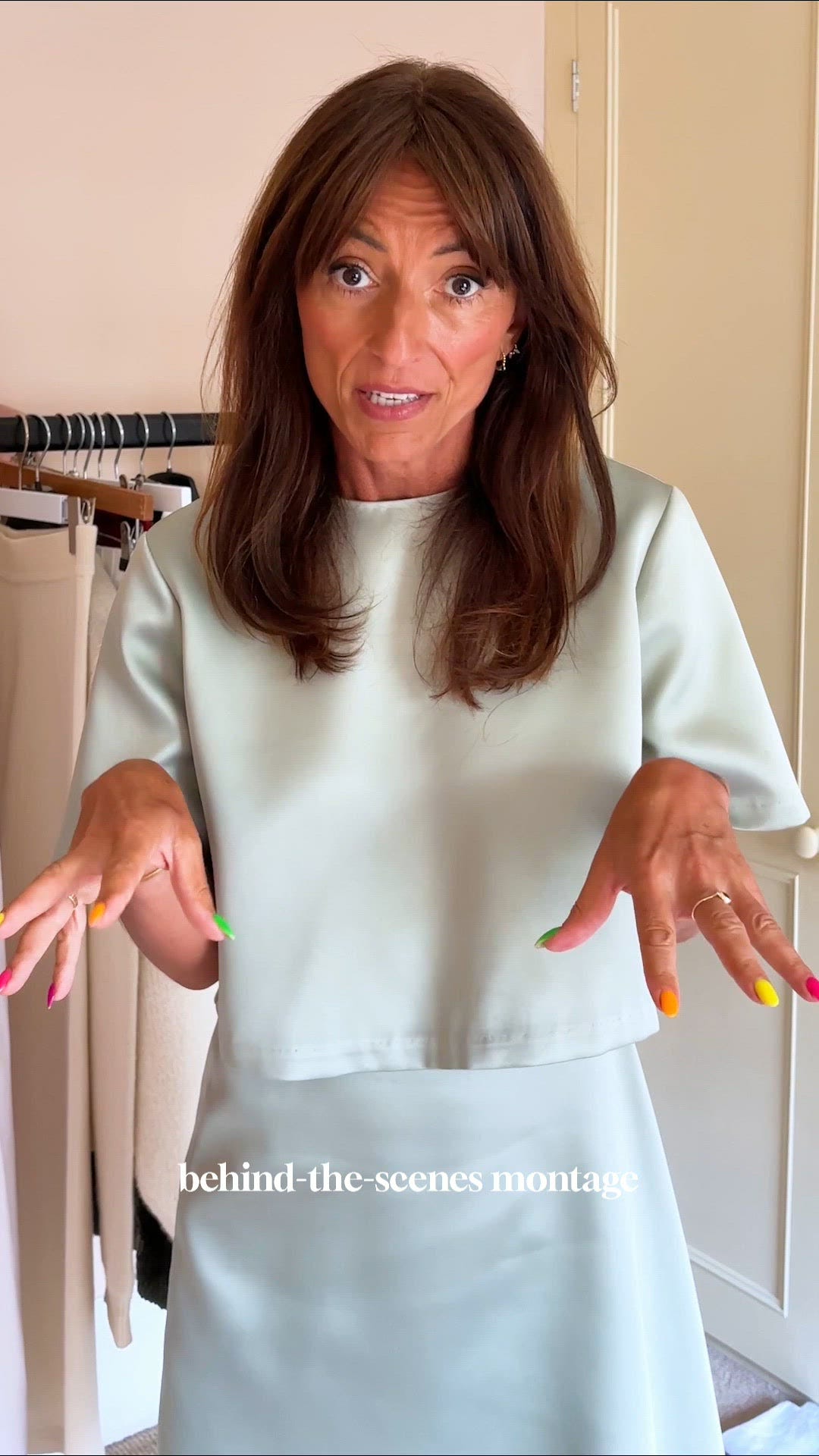'I love the way you speak confidently in front of people,’ a friend who’s just seen me speak at a menopause retreat says to me. ‘You sound like you really know what you’re talking about.’ I feel… flattered, of course, but mostly mortified. My kneejerk response is to say she’s got it totally wrong. ‘Oh, it’s nothing,’ I reply. ‘I’m good at bluffing.’ My friend corrects me. ‘Take the compliment!’ she says. ‘I can’t!’ I say, tensing.
Good Housekeeping research suggests that kindness is the quality women most value in each other. Yet when I retreat to my room, I lie on the bed and try to recall the last time I accepted a compliment. I can’t, because I find it impossible.
A couple of days later, I’m home. ‘You look so happy and glowing,’ one of the mums says to me on the school run. ‘I’m soooo tired,’ I respond. ‘And look, my skin is all peeling off my arms.’ I’m not alone in this. A study by retailer JD Williams revealed that 52% of women rejected a compliment when it was given. More than half (56%) said they’d felt embarrassed when they received a compliment. Other top reasons for rejecting a compliment included a desire to avoid drawing attention to oneself (52%) and simply not agreeing with it (42%).
What to read next
When I met my first boyfriend, he said I looked like a Botticelli painting. Why do I still treasure this one compliment? It was different to the bland, insincere-sounding ones I’d got from other boys (on the flipside, I had to look up who Botticelli was at the library). Maybe I can try this with friends. If I say, ‘You look fab, hun,’ it feels generic, easier to brush off. But if I try saying something specific and imaginative (‘That jumper looks exactly like the one Naomi Watts wore in her interview with Fearne Cotton’), perhaps it’s more likely to land and to be remembered.
Truthfully, though, I really struggle accepting compliments of any kind from other women. I speak to author and psychotherapist Jennifer Cox about why. ‘I think it’s about reducing the feeling of competition between us and increasing a sense of solidarity,’ she says. ‘The trouble is, by brushing off a compliment, we actually leave the other woman feeling silly and exposed, so the strategy backfires. It’s better to say, “Thank you, that’s made me feel good about myself. I appreciate it.” This is a more effective way of creating a line of mutual support and compatibility.’
The following day, I bump into a friend in the supermarket. She tells me I look like I’ve been going to the gym (she’s right, I have). Instead of my usual, ‘No, you look like you’ve been going to the gym!’, I smile and say, ‘Hey, thank you! That’s given me a boost.’ I also resist the urge to throw in my usual tailspin of self-deprecation (‘It was only a short trip to the gym, I’m very unfit and had a red face’ etc). Although as I walk away, I do worry that she’ll now think I’m a massive show-off.
Amy Kean, CEO of the coaching company Good Shout, agrees that women need to undo our social conditioning if we’re to receive compliments with grace. ‘Women love compliments,’ she says. ‘But there’s an ingrained belief that we shouldn’t come across as arrogant. We did some research on this and found that over a third of women worry about coming across as “too confident” and 43% of women have played down achievements in order to be liked. We shrink ourselves just in case it offends someone.’
Taking compliments needs practice, I realise. It’s like sit-ups. Painful and impossibly difficult to start with, but over time you build up your muscles until you can effortlessly execute several in a row without even feeling the need to dish out a compliment in return. Although, you do look great today and I love what you’ve done with your hair.
How to accept a compliment - according to experts
- Remember, you're not doing anyone a favour by deflecting the compliment. Psychotherapist and author Hilda Burke says we should think about the other person’s feelings and motivation for giving a compliment. ‘A compliment received gratefully makes everyone feel good,’ she says. ‘We give compliments because we want the other person to recognise something about themselves. It’s important to see the bonding potential in receiving compliments.’
- To change a habit, you need to pause for a moment. Sometimes our behaviour is so entrenched that we say things without thinking. Hilda gives the following advice for setting a new dynamic: ‘When you get a compliment, take a beat and tell yourself: “Okay, I’m going to sit with that. I’m not going to push it away.”’
- When giving a compliment, think specific. ‘Focus on details, so it’s harder to reject,’ suggests Amy. ‘And don’t say things that applaud women shrinking, like, “Look how tiny you are!” because all you’re doing is playing into the age-old process of socialisation.’













